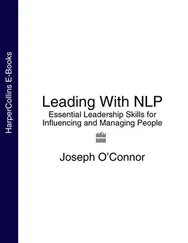John Gray - Children Are from Heaven - Positive Parenting Skills for Raising Cooperative, Confident, and Compassionate Children
Здесь есть возможность читать онлайн «John Gray - Children Are from Heaven - Positive Parenting Skills for Raising Cooperative, Confident, and Compassionate Children» весь текст электронной книги совершенно бесплатно (целиком полную версию без сокращений). В некоторых случаях можно слушать аудио, скачать через торрент в формате fb2 и присутствует краткое содержание. Год выпуска: 1999, ISBN: 1999, Издательство: HarperCollins e-books, Жанр: psy_childs, sci_pedagogy, Психология, на английском языке. Описание произведения, (предисловие) а так же отзывы посетителей доступны на портале библиотеки ЛибКат.
- Название:Children Are from Heaven: Positive Parenting Skills for Raising Cooperative, Confident, and Compassionate Children
- Автор:
- Издательство:HarperCollins e-books
- Жанр:
- Год:1999
- ISBN:978-0-06-133886-1
- Рейтинг книги:4 / 5. Голосов: 1
-
Избранное:Добавить в избранное
- Отзывы:
-
Ваша оценка:
- 80
- 1
- 2
- 3
- 4
- 5
Children Are from Heaven: Positive Parenting Skills for Raising Cooperative, Confident, and Compassionate Children: краткое содержание, описание и аннотация
Предлагаем к чтению аннотацию, описание, краткое содержание или предисловие (зависит от того, что написал сам автор книги «Children Are from Heaven: Positive Parenting Skills for Raising Cooperative, Confident, and Compassionate Children»). Если вы не нашли необходимую информацию о книге — напишите в комментариях, мы постараемся отыскать её.
Children Are from Heaven: Positive Parenting Skills for Raising Cooperative, Confident, and Compassionate Children — читать онлайн бесплатно полную книгу (весь текст) целиком
Ниже представлен текст книги, разбитый по страницам. Система сохранения места последней прочитанной страницы, позволяет с удобством читать онлайн бесплатно книгу «Children Are from Heaven: Positive Parenting Skills for Raising Cooperative, Confident, and Compassionate Children», без необходимости каждый раз заново искать на чём Вы остановились. Поставьте закладку, и сможете в любой момент перейти на страницу, на которой закончили чтение.
Интервал:
Закладка:
Positive parenting doesn’t require fear to
motivate children to remember.
When we are afraid of making mistakes, we make more mistakes. Most people have experienced that fear tends to attract the very thing we are afraid of. For example, when I wear a new tie, I will often get a spot on it the first time I wear it. On the other hand, I get more compliments the first time I wear it.
If I am thinking how nice my tie is, more people notice it and compliment me on it. If I am very nervous about spilling food on it, it happens inevitably. The fear of making mistakes not only creates unnecessary anxiety in our lives, but it also causes us to make more mistakes.
An awareness of positive consequences is a better motivator; fear is not necessary to teach a child an awareness of consequences. Leave natural consequences up to nature; don’t play God. Instead, parents should do their best to support their children. If you can’t give them a particular support, don’t; but if you can, do.
Leave natural consequences up to nature;
don’t play God.
The difficult issue here is: Am I sacrificing too much to give to my children? When parents deprive themselves, then they are giving too much and it will tend to make children overly demanding.
Giving too much can be easily corrected. Your children will let you know when you are giving too much. They will become overly demanding or you will begin to resent their demands. At this point, you need to back up from giving so much. This kind of adjusting is normal and to be expected.
THE FEAR OF REWARDS
Sometimes parents are afraid that if they give rewards their children will lose their natural motivation to cooperate.
They imagine giving rewards and then having a child who says “What’s in it for me,” every time you ask him or her to do something. They go on to imagine an unwilling child demanding more and more in return for cooperation. While this nightmare is unlikely, it may occur if the child is not getting his other needs met as well.
Whenever you ask children to cooperate, a healthy part of them does ask “What’s in it for me,” and as long as they are getting what they need, they don’t demand more.
Children cooperate because all children are born wanting to cooperate in order to get the love they need. When children are aware of a need and trust that they will get the support they need, then they are more than willing to be cooperative.
When children get what they need they don’t
demand more rewards.
As long as children basically get what they need, then they feel their needs and don’t get lost in their wants. This awareness of their need for parental support makes children more considerate and cooperative. They don’t ask for more all the time. They don’t just focus on “what’s in it for me” and demand more. As a general rule, children only focus on wanting more when they are not feeling what they really need.
Children primarily need rewards to overcome their resistance when they are not getting what they need in the moment. Offering to give a reward simply promises them that they will get more and suddenly they return to their natural willingness to be cooperative. Making deals and promising rewards is not caving in and giving children whatever they may want. It is actually the opposite: Giving a reward is asking the child to cave in to your wish and in return get more later. It is one of the most powerful ways to teach a child delayed gratification.
Sometimes giving rewards is not enough to minimize resistance and increase cooperation. When giving rewards doesn’t work, then it’s time to assert your leadership as parent or boss.
When parenting becomes a little too child-centered and focused on giving children whatever they want, then the parents must assert their leadership to regain control. In the next two chapters, we will explore how this is done.
7
New Skills for
Asserting Leadership
The greatest power parents have is the power to guide their children. Children are born wanting to please and cooperate with their parents. Children are already hardwired to respect the boss. Recognizing and using this power allows a parent to give up outdated practices based on fear and guilt.
Without an understanding of how to use this power, the child takes control. Unless parents use their power to guide, they will lose control.
Children want to please their parents but, at the same time, they have their own wants and needs. When given the opportunity to feel and express their own wants, while also getting a clear message of what their parents want, children will ultimately seek to cooperate and yield to their parents’ will and wish.
When parents use guilt or fear as a way to motivate cooperation, they weaken their child’s natural willingness to cooperate. In response to a parent’s anger, frustration, and disappointment, children may become obedient, but they will lose a part of who they are. Not only is their natural development restricted, but later in life they often become people pleasers. They do not have a healthy sense of themselves and tend to give more than they get back.
LEARNING HOW TO COMMAND
Before using a command the first step is simply to ask and not to demand. If the child resists your request, the second step is to listen and nurture. If listening isn’t enough, then in step three we offer a reward. If offering a reward doesn’t work, then step four is to assert your leadership and command. When the first three steps of asking for cooperation do not work, parents need to command their children, just as a general commands the troops.
To command is to tell your child directly what you want him or her to do. A command sounds like this. In a firm but calm voice say, “I want you to put your clothes away,” or “I want you to get ready for bed,” or “I want you to stop talking in there and go to sleep.”
Once you use your command voice, you must remain strong. Using emotions, reasons, explanations, arguments, blame, or threats weakens your natural authority. Getting upset or trying to convince a child to cooperate at this point is a sign you do not feel confident in your role as general, boss, or parent. If the child has already resisted steps one, two, and three, then the parent needs to establish a clear message of who is the boss. By asserting leadership, you once again establish yourself as the boss. The child needs a strong leader to yield to.
Once you use your command voice,
you must remain strong.
Many parents command without consistently using steps one, two, and three. It does not work. Certainly, a parent doesn’t always have to use the earlier steps, but if commanding is used too often, without the previous steps to invite and motivate cooperation, it loses its effect. In the past, children would submit to a parent’s command, but today children need to be heard as well.
The most powerful assertiveness technique is
to repeat your command with the confidence
that the child will soon yield.
Children learn from previous experience that when you command, you will not yield. All negotiation is over. If they continue to resist, to assert leadership you simply hear their resistance with less empathy and repeat your command. The most powerful assertiveness technique is simply to repeat your command with the confidence that the child will soon yield.
Ultimately, as the child continues to resist and you persist without resorting to emotions or reasons, you will prevail.
DON’T USE EMOTIONS TO COMMAND
If parents succumb to yelling, getting angry, displaying frustration, or making threats of punishment, they automatically give away their power to command. Using your upset emotions turns your command into a demand, and your positive position is weakened. You may be able to break a child’s will and create obedience, but you will not be strengthening his or her natural willingness to cooperate.
Читать дальшеИнтервал:
Закладка:
Похожие книги на «Children Are from Heaven: Positive Parenting Skills for Raising Cooperative, Confident, and Compassionate Children»
Представляем Вашему вниманию похожие книги на «Children Are from Heaven: Positive Parenting Skills for Raising Cooperative, Confident, and Compassionate Children» списком для выбора. Мы отобрали схожую по названию и смыслу литературу в надежде предоставить читателям больше вариантов отыскать новые, интересные, ещё непрочитанные произведения.
Обсуждение, отзывы о книге «Children Are from Heaven: Positive Parenting Skills for Raising Cooperative, Confident, and Compassionate Children» и просто собственные мнения читателей. Оставьте ваши комментарии, напишите, что Вы думаете о произведении, его смысле или главных героях. Укажите что конкретно понравилось, а что нет, и почему Вы так считаете.












